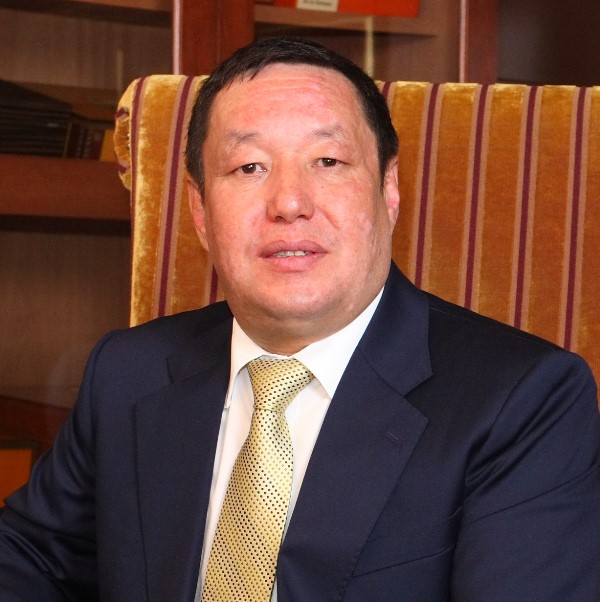Any business or industry in a developed economy that ignored good waste management practices would soon find itself deep in trouble. Competitors who had reduced costs by using energy and resources more wisely would undercut prices and take customers. Breaches of environmental rules would lead to prosecutions and fines. Pollution would spark an angry backlash from the communities where they operate and, increasingly, from consumers.
 But in many emerging countries, these pressures do not exist or are in their infancy. The emphasis remains on increasing production as fast as possible with little thought given to longer-term costs. Economic growth is the over-riding priority.
But in many emerging countries, these pressures do not exist or are in their infancy. The emphasis remains on increasing production as fast as possible with little thought given to longer-term costs. Economic growth is the over-riding priority.
Kazakhstan – one of the world’s fastest growing economies over the last two decades – shows the results, good and bad, of this approach. GDP has increased twenty-fold since the country became independent in 1991. Living standards have been transformed. The country is much more prosperous and its citizens enjoy much greater opportunities.
But at the same time, there is a growing recognition within Kazakhstan of the long-term damage being caused to our economy, environment and society. Outdated and inefficient industrial processes, often unchanged from the Soviet era, see huge amounts of energy and materials wasted. Costs remain high which, as markets open up, risks businesses becoming uncompetitive.
Recycling rates are dismally low at below one per cent. The result is around 25 billion tonnes of waste, largely industrial, lying on or under the ground. Valuable materials that could be re-used are discarded.
Poor environmental safeguards have led to widespread pollution from waste and production. Across the country, there has been the wholesale dumping of often toxic waste, slowly poisoning large areas of our country and water supplies.
As a country, we understand that we can’t continue to use up new resources at an unsustainable rate or throw away valuable recyclable materials if we are to meet our ambition of joining the ranks of the world’s 30 most developed economies by 2050. We can see as well that that our environment is suffering and the health and well-being of our people is at risk.
The challenge is how to turn this round when irrational measures of economic activity have become the norm and there has been neither a culture nor infrastructure in place to deliver good waste management. It is a change that has taken more developed countries many decades – time that emerging economies do not have.
There is no single answer but it requires a national strategy and effective legislation and regulation. Environmental standards need to be introduced, updated and enforced. This must take place at a national rather than regional or local level, which has been the case up to now in Kazakhstan.
Whether we are talking about mature or developing economies, major enterprises in the modern world often have too much power for regional authorities to police them properly. It is also important that regulations cover entire industries and are enforced in a uniform manner. This ensures a level playing field and prevents unfair competition when companies have the chance to duck the additional short-term costs of higher standards.
This, of course, means polluters must be made to face the financial consequences of their behaviour. There is little incentive for industries to change or innovate if society, and not them, is meeting clean-up costs. The ‘polluter pays’ principle needs to be put into practice. This must be coupled with additional support for innovation and recycling infrastructure. Steps must be taken to gather and analyse accurate data and share knowledge and best practice widely. Independent research centres are needed to provide a link between the public authorities and private sector, as well as strengthening the growing influence of civil society in Kazakhstan.
Kazakhstan’s sovereign wealth fund, Samruk-Kazyna, is supporting research into the management of resources and waste minimisation in preparation for our capital city’s hosting of EXPO-2017, but this should only be the beginning.
The focus should be on long-term change, which requires a long-term perspective. So education – in the boardroom but also the factory floor and classroom – will be as important as enforcement. Rigorous research can help increase awareness at all levels of what can be achieved, the benefits of action and of what is at risk.
Kazakhstan is taking steps in all of these areas. But progress will come faster with the involvement of outside expertise. Our economic progress over the last two decades has rested heavily on our openness to ideas and investment from beyond our borders. We need the same partnerships to help drive our second industrial revolution.
The author is ambassador-at-large of the Ministry of Foreign Affairs of the Republic of Kazakhstan and holds a PhD in political economy. This article first appeared on The Environment magazine website, the official publication of the Chartered Institution of Water and Environmental Management in the United Kingdom.
